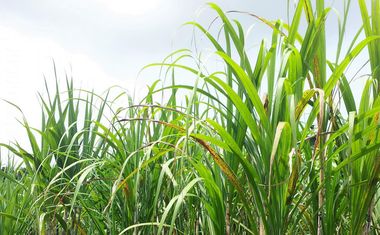Our undertaking is to significantly decrease the import of fossil coal and replace it with GreenCoal.
Our unique product is made from farmed domestic elephant grass but also bagasse or Prosopis, i.e., material considered to be waste or invasive.
GreenCoal will not only massively cut the annual importation of million-tons of fossil coal, and thereby reducing foreign currency spending, but will also provide income for tens of thousands of people in rural parts of Africa.
Ethiopia is one of the fastest growing economies in Africa and the world. It benefits from a strategic location in East Africa with nearby waterways bringing it close to the Middle East and Europe. With over 110 million inhabitants Ethiopia provides a large and growing home market. Foreign companies profit from beneficial investment conditions, relatively skilled labor, and a largely uninterrupted supply of electric power, increasingly from hydropower. Ethiopia has been likened with a factor of stability in a volatile region. Ethiopia is a late starter but a quick mover in industry and commerce, opening to foreign markets with a view of sustaining growth as a green economy. Emphasis is placed on environmental concerns in the country’s development policies.
Our team has been carefully put together to include large scale industrial project management expertise, proficiency in logistics, mining and engineering. Founders combine start-up and entrepreneurial knowledge with devotion for sustainability.
Our team brings technology to market. Expertise includes major industrial actors in Ethiopia. Together we represent decades long practical business experience in Ethiopia and Africa. Understanding local conditions, whether cultural or environmental, is key to our proven success over time.
For decades deforestation has taken place on a massive scale in Ethiopia. In place of forest and savannah, wastelands have spread. With the technological breakthrough of Green Coal this land can be made useful. Tens of thousands of marginalized and unemployed rural people will provide raw material by growing elephant/bana grass and cropping the weedlike invasive bush called prosopis which presently covers an area of over 2 million hectares.
Especially in the elephant/bana grass process carbon dioxide will bind in the soil, thus making it carbon negative in the short run and fertile over time. It can then be used for food crops or recreating the natural landscape for the benefit of wildlife and game. Wastelands of this kind are bountiful, covering not only large parts of Ethiopia but also spreading to nearby countries and regions, including Sudan and Somaliland.
Sugarcane waste from the sugar industry, that is otherwise burnt, will be collected. We work close with farmers and local communities. We collaborate with organizations to provide health care and education.
We guarantee not to involve child labour, to sustain a policy of fair pricing and benefit equality of all sorts including marginalized communities and women.
Primary users of imported fossil coal are the cement industry, consuming over 1 million tons at present, with a full capacity of 1.5 million tons. Since Green Coal will be sold at a discount to the imported fossil coal, the effect on the cost of producing cement will be substantial. Fossil coal represents up to 60% of the total cost of cement production in Ethiopia.
The process starts by drying the input material. Once dried the material enters the torrefaction reactor. There it is heated in a process without oxygen producing a coal-like material. Thereafter it enters the densification process to convert the Green Coal into the final product.

Elephant Grass Known for its large yields and robustness, can also grow well in arid areas and doesn’t need irrigation

Bagasse is waste from the sugar industry

Prosopis are bushes growing to the size of small trees. They have become an invasive plant in significantly large areas (>2 Mha)